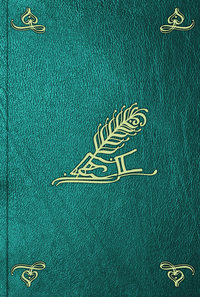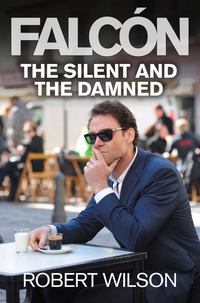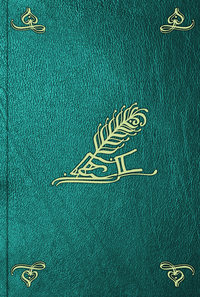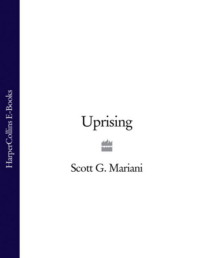
Полная версия
The Company of Strangers
Voss was driven back to Restricted Area I in silence, the dead hand of a full inquiry already on his shoulder. He pieced together the ugly fragments of information in his brain and felt his mind recoil in disgust. He began to see, for the first time, how a man could shoot himself. Until then it had been a mystery to him, on hearing of someone’s suicide, how a man could bring himself to such a disastrous conclusion. He smoked hard until he was quite faint and prickling. He staggered up the path to the main building and realized on entering that the horrific news had preceded him by some minutes.
The dining room was full, but rather than being morbid with the news of the death of the most important and capable engineer in the German Reich, it was rife with the rumour of a successor. The monochrome mass of braid and band, oak leaf cluster and iron cross seethed like the bullring of the Bourse. Only one man was silent, head up, hair swept back, dark eyes shining under the thick straight eyebrows – Albert Speer. Voss blinked, sure as a camera shutter, and captured the image – a man on the brink of his destiny.
Voss took a coffee, fed himself into the knots of conversation and soon realized that anybody with anything to do with construction and transportation was in the room.
‘Speer will take the Atlantic Wall, the U-boat pens and the Occupied West. It’s already been talked about.’
‘What about the Ukraine? The Ukraine is more important now.’
‘You didn’t forget that we declared war on the United States before Christmas.’
‘No, I didn’t, and nor did Todt.’
Silence. Heads swung to Speer’s table. People were putting things to him and he was managing vague replies to their questions, but he wasn’t listening. He was coming to terms with a price. Appalled at the animal troughing around him, unwilling to accept anything that they attempted to confer on him, he was trying to justify to himself not only his presence there (for the first time and on such a tragic occasion), but something else whose nature he couldn’t quite grasp. He seemed to be coping with a strong, unpleasant smell which had reached his nostrils only.
‘He won’t give it all to him…the Führer wouldn’t do that. No experience.’
‘He’ll split Armaments and Munitions away from Construction.’
‘You wait…the Reichsmarschall will be here any moment. Then we’ll see…’
‘Where is Goering?’
‘At Romiten. Hunting.’
‘That’s only a hundred kilometres away…has anybody called him?’
‘Goering will take Armaments and Munitions into his Commission for the Four Year Plan. He’s in charge of the war economy. It fits.’
‘The only thing that fits, if you ask me, is that one’s face over there.’
‘What’s Speer doing here, anyway?’
‘He was stuck in Dnepropetrovsk. He flew in with Captain Nein last night.’
‘He fetched him?’ asked a voice, aghast.
‘No, no Captain Nein flew in there with SS General Sepp Dietrich and offered Speer a lift.’
‘Did Speer and the general…talk?’
There was silence at that probability and Voss moved across to some air force officers who were picking over the details of the crash.
‘He must have pulled the self-destruct handle.’
‘Who? The pilot?’
‘No, Todt…by accident.’
‘Did it have a self-destruct mechanism on board?’
‘No, it was a new plane. It hadn’t been fitted.’
‘What was he doing in a two-engined plane in the first place? The Führer has expressly forbidden…’
‘That’s what Todt was told yesterday. He was furious. The Führer waived it.’
‘That’s why they took the plane up for a practice spin.’
‘And you’re sure there was no self-destruct mechanism?’
‘Positive.’
‘There were three explosions…that’s what the flight sergeant said.’
‘Three?’
‘There must have been a self-destruct…’
‘There was none!’
Voss went to the decoding room to pick up any positional changes in the field. He took the decodes to the situation room. The corridor was silent. Hitler rarely moved before eleven o’clock, but on a day such as this? Surely. The apartment door stayed closed, the SS guards silent.
Weber was already working on supply positions in the Ukraine. He didn’t look up. Voss leafed the decodes.
‘SS Colonel Weiss was looking for you,’ said Weber.
‘Did he say what he wanted?’ asked Voss, bowels loosening.
‘Something about those boxes of files…’
‘Have you heard, Weber?’
‘About the plane crash, you mean?’
‘The Reichsminister Todt is dead.’
‘Were those files on board?’
‘Yes,’ said Voss, stunned by Weber’s insouciance.
‘Shit. Zeitzler’s going to be mad.’
‘Weber,’ said Voss, amazed, ‘Todt is dead.’
‘Todt ist tot. Todt ist tot. What can I say, other than it will brighten the Führer’s day not to have that doom merchant on his shoulder.’
‘For God’s sake, Weber.’
‘Look, Voss, Todt never agreed with the Russian campaign and when the Führer declared war on America, well…poof!’
‘Poof!?’
‘Todt was a very cautious man, unlike our Führer who is…what shall we say…?’
‘Bold.’
‘Yes, bold. That’s a good, strong adjective. Let’s leave it at that.’
‘What are you saying, Weber?’
‘Keep your head down and your ears out of that corridor. Do your job, don’t blabber, this is all that matters,’ he said, and drew a circle around himself. ‘You haven’t been here long enough to know what these people are capable of.’
‘They’re already talking about Speer. Goering taking over…’
‘I don’t want to know, Voss,’ said Weber, closing his hands over his ears. ‘And nor do you. You’ve got to start thinking about those files, how they got on that plane and why SS Colonel Weiss wants to talk to you, because if he wanted to talk to me after such a morning I’d have been in the toilet an hour ago. Start thinking about yourself, Voss, because here in Rastenburg you’re the only one who will.’
The mention of the toilet sent Voss out of the room at a brisk pace. He sat in one of the stalls, face in hands, and passed a loose, hot motion which, rather than emptying him, left his guts writhing.
Colonel Weiss caught up with him while he washed his hands. They talked to each other via the mirror, Weiss’s face disturbingly wrong in reflection.
‘Those files…’ started Weiss.
‘General Zeitzler’s files, you mean?’
‘Did you check them, Captain Voss…before you took them into your care?’
‘Took them into my care?’ Voss asked himself, chest wall shuddering at the impact of this implication.
‘Did you, Captain? Did you?’ persisted Weiss.
‘They weren’t mine to check, and even if they were I wouldn’t know why I would have to check a large amount of documentation irrelevant to me.’
‘So who filled those boxes?’
‘I didn’t see them filled.’
‘You didn’t?’ roared Weiss, throwing Voss into free-fall fear. ‘You put boxes on to a Reichsminister’s plane without…’
‘Maybe you should ask Captain Weber,’ said Voss, desperate, lashing out at anything to save himself.
‘Captain Weber,’ said Weiss, writing him down in his book of the damned.
‘I was doing him a favour putting the files on the plane in the first place, as I was for…’He coughed at a garrotting look from Weiss and changed tack. ‘Is this part of the official inquiry, sir?’
‘This is the preliminary investigation prior to the official inquiry which will be conducted by the air force, as it is technically an air force matter,’ said Weiss, and then more threatening, ‘but as you know, I’m in charge of all security matters in and around this compound…and I notice things, Captain Voss.’
Weiss had turned away from the mirror to look at him for real. Voss stepped back and his boot heel hit the wall but he managed to look Weiss straight in his terrible eye, hoping that his own stress, from the G-force steepness of the learning curve, was not distorting his face.
‘I have a copy of the manifest,’ said Weiss. ‘Perhaps you should read it through now.’
Weiss handed him the paper. It started with a list of personnel on the flight. Speer’s name had been added and then crossed out. Underneath was the cargo. Voss ran his eyes down the list, which was short and consisted of four boxes of files for the Army Chief of Staff, delivery Berlin, and several pieces of luggage going with Todt to Munich. There was no mention of a metal trunk for delivery to the SS Personalhauptamt in Berlin-Charlottenburg.
Voss had control of his panic now, the horizon firm in his head as he came up to the moment, or was it the line? Yes, it was something to be crossed, a line with no grey area, without no man’s land, the moral line, which once stepped over joined him to Weiss’s morality. He also knew that to mention the nonexistent trunk would be a lifechanging decision, one that could change his life into death. It nearly amused him, that and the strange clarity of those turbulent thoughts.
‘Now you understand,’ said Weiss, ‘why it’s necessary for me to do a little probing on the question of these files.’
‘Yes, sir,’ said Voss. ‘You’re absolutely right, sir.’
‘Good, we have an understanding then?’
‘Yes, sir,’ said Voss. ‘One thing…wasn’t there…?’
Weiss stiffened in his boots, the scar dragging down his eye seemed to pulsate.
‘…wasn’t there a self-destruct mechanism on the plane?’ finished Voss.
Weiss’s good eye widened and he nodded, confirming that and their new understanding into him. He left the toilets. Voss reverted to the sink and splashed his hot face over and over with cold water, not able to clean exactly, but able to revise and rework, justify and accommodate the necessity for the snap decision he’d been forced to make. He dried his face and looked at himself in the mirror and had one of his odd perceptions, that we never know what we look like to others, we only know our reflection and that now he knew he would be different and it might be all right because perhaps he would just look like one of them.
He went outside for a smoke and to pace out his new understanding, as if he was wearing different boots. Senior officers came and went with only one topic of conversation on their hungry lips and two names, Speer and Todt. But by the end of that cigarette Voss had made his first intelligence discovery in the field, because the officers still came and went and they still had those two names on their lips but this time they were shaking their heads and the words ‘self-destruct mechanism’ and the ‘incidence of failure’ had threaded their way amongst the names.
It comes out of here and goes in there, thought Voss. The inestimable power of the spoken word. The power of misinformation in a thunderstruck community.
Voss went back to work. No Weber. He replotted the latest movements from the decodes. Weber returned, took a seat, braced himself against the desk. Voss kept his head down, looked at Weber through the bone of his cranium.
‘At least I know you can listen now,’ said Weber. ‘You’ve passed the first Rastenburg test with an A and you don’t have to worry about me and those files. I didn’t fill them. I didn’t seal them. I didn’t even sign for them. Learn something from that, Voss. They’re saying now that somebody must have accidentally pulled the self-destruct handle in the plane. We’re all in the clear. Are you hearing me, Voss?’
‘I’m hearing you.’
Voss did hear him, but only through the reel of film in his head which was full of the black metal trunk with its white stencilled address. His hands lifting the trunk and taking it into the plane where he jams it between the seats so it won’t slide about – two of Zeitzler’s boxes of files on top and two on the seats by the trunk. Todt comes on to the plane, preceded by his luggage, impatient to be away from the scene of his disastrous politicking and up into the light of the sunshine and the clear air where everything is comprehensible. He straps himself into his seat, not next to the pilot but in the fuselage where he might be able to do some work. The hold darkens as the door closes. The pilot taxis to the end of the runway. The plane steadies itself, the wings rock and stabilize. The propellers thrash the icy air. The pressure kicks in behind the old man’s back and they surge down the runway flashing white, grey and black at the snow and ice patches on the strip. Then Todt sees the black trunk and some low animal instinct kicks in the paranoia and a terrible realization. He roars at the pilot to stop the plane but the pilot cannot stop. The velocity is already too great. He has to take off. The wheels defy gravity and Todt has a moment of weightlessness, a premonition of the lightness of being to follow. They bank in the steep curve, the trunk tight against the wall of the fuselage. Todt staring into the black Polish pine trees, or are they East Prussian pine trees now, Germanic Empire pine trees? Todt’s weight has come back to him and he’s in a panic now. He’s seen the trunk before. He’s seen it in his head and he knows what’s in it. He knew what would be in it the night before and he woke up with the knowledge this morning and it was further confirmed by the flight captain who told him that Speer would not be on the plane. What was Speer doing here anyway? Todt and Speer. Two men who knew their destiny and had no hesitation in obeying. The plane’s wings are still perpendicular to the ground. The black forest is still flashing past Todt’s care-worn eyes. The wings flatten. They’re going to make it after all. The pilot is hunched and roaring at the control tower. The altimeter winds its way down through three hundred to two hundred to one hundred and fifty and Todt is praying and the pilot is praying too, although he doesn’t know why and that is how they enter the biggest noise, the whitest light. Two men praying. One who didn’t like war enough and the other unlucky to be flying him.
And then silence. Not even the wind whistling through the shattered fuselage. Pure peace for the man who didn’t like war enough.
‘Everything all right in there, Voss?’
Voss looked up, dazed, Weber a blur in his eye.
‘There was something else…’
‘There was nothing else, Voss. Nothing that anybody wants to know. Nothing that I want to know. Those words stay in your head. In here we talk about military positions. All right?’
Voss went through the decodes. The black metal trunk slid into a dark recess, the murky horror corner of his mind, and soon the white stencilled address was barely readable.
At 1.00 p.m. Hitler sent an adjutant to bring in his first caller of the day. The adjutant returned with Speer in his wake. Fifteen minutes later the Reichsmarschall Goering appeared in the corridor smiling and resplendent in light blue, his smooth jowls, shiny perhaps from the patina of last night’s morphine sweat, juddered with each step. Half an hour later it was out. Speer had been appointed Todt’s successor in all his capacities and the Reichsmarschall Goering’s humour was reclassified as unstable.
Men from the Air Ministry sifted the wreckage for days and found nothing but seared metal and black dust. The black metal trunk with its white stencilling had ceased to exist. SS Colonel Weiss, under Hitler’s instructions, conducted an internal investigation into the airport personnel and ground crew. Voss was required to supply his initials to the manifest alongside the four box files – posterity for his perjury.
The ice began to thaw, tanks whose tracks had been welded to the steppes broke free and the war rolled on, even without the greatest construction engineer in German history.
Chapter 4
18th November 1942, Wolfsschanze HQ, Rastenburg, East Prussia.
Voss wanted to remove his eyeballs and swill them in saline, see the grit sink to the bottom. The bunker was silent with the Führer away at the Berghof in Obersalzberg. Voss’s work had been finished hours ago but he remained at the situation table, chin resting on his white, piled fists, staring into the map where a rough cratering existed at a point on the Volga river. Stalingrad had been poked and prodded, jabbed and reamed until it was a dirty, paperflaked hole. As Voss looked deeper into it he began to see the blackened, snow-covered city, the cadaverous apartment buildings, the gnarled and twisted beams of shelled factories, the poxed façades, the scree-filled streets littered with stiffened, deep-frozen bodies and, alongside it, growing to midnight black in the white landscape and becoming viscous with the cold, the Volga – the line of communication from the south to the north of Russia.
He was sitting in this position long after he could have gone to bed, contemplating the grey front line that was now stretched to the thinness of piano wire since the German Sixth Army had ballooned it over to Stalingrad, because of his brother. Julius Voss was a major in the 113th Infantry Division of the Sixth Army. This division was not one of those fighting like a pack of street dogs in the ruins of Stalingrad but was dug into the snow somewhere on the treeless steppe east of the point where the river Don had decided to turn south to the Sea of Azov.
Julius Voss was his father’s son. A brilliant sportsman, he’d collected a silver in the epée at the 1936 Berlin Olympics. He rode a horse as if it was a part of him. On his first day’s hunting at the age of sixteen he’d tracked a deer for a whole day and shot it in the eye from 300 metres. He was a perfect and outstanding army officer, loved by his men and admired by his superiors. He was intelligent and, despite his life of brilliance, there wasn’t a shred of arrogance in the man. Karl thought about him a lot. He loved him. Julius had been his protector at school, sport not being one of Karl’s strengths and, having too many brains for everybody’s comfort, life could have been hell without a brother three years older and a golden boy, too. So Karl was taking his turn to watch over his brother.
The German position was not as strong as it might first appear. The Russians had trussed up ten divisions in and around the city in bloody and brutal street-to-street fighting since September and now, unless they could hammer home the death blow in the next month, it looked as if the rest of the German army would be condemned to spend another winter out in the open. More men would die and there would be little chance of the Sixth Army being reinforced until the spring. The situation was doomed to a four-month deep-frozen stalemate.
The door to the situation room crashed open, cannoned off the wall and slammed shut. It opened more slowly to reveal Weber standing in the frame.
‘That’s better,’ he said, trying to put some lick on to his lips, clearly drunk, steaming drunk, his forehead shining, his eyes bright, his skin blubber. ‘I knew I’d find you in here, boring the maps again.’
Weber swaggered into the room.
‘You can’t bore maps, Weber.’
‘You can. Look at them, poor bastards. Insensate with tedium. You don’t talk to them, Voss, that’s your problem.’
‘Piss off, Weber. You’re ten schnapps down the hole and not fit to talk to.’
‘And you? What are you doing? Is the brilliant, creative military mind of Captain Karl Voss going to solve the Stalingrad problem…tonight, or do we have to wait another twenty-four hours?’
‘I was just thinking…’
‘Don’t tell me. Let me guess. You were just thinking about what the Reichsminister Fritz Todt said to you before his plane crash…’
‘And why shouldn’t I?’
‘Because it’s morbid in a man of your age. You should be thinking about…about women…’ said Weber and, placing both hands on the table, he began some vigorous, graphic and improbable thrusting.
Voss looked away. Weber collapsed across the table. When Voss looked back, Weber’s face was right there, giving him the wife’s-eye view, head on the pillow, husband sweaty, lurid, tight, pink skin and wet-eyed.
‘You shouldn’t feel guilty just because Todt spoke to you,’ said Weber, licking his lips again, eyes closed now as if imagining a kiss coming to him.
‘That’s not why I feel guilty. I feel…’
‘Don’t tell me, I don’t want to know,’ said Weber, sitting up and shunning him with a hand. ‘Bore your maps, Voss. Go on. But I’ll tell you this,’ he came in close again, devil breath, ‘Paulus will take Stalingrad before Christmas and we’ll be in Persia by next spring, rolling in sherbet. The oil will be ours, and the grain. How long will Moscow last?’
‘The Romanians on the River Don front have reported huge troop concentrations in their north-west sector,’ said Voss, flat and heavy.
Weber sat up, dangled his legs and gave Voss the gab, gab, gab with his hand.
‘The fucking Romanians,’ he said. ‘Goulash for brains.’
‘That’s the Hungarians.’
‘What?’
‘Who eat goulash.’
‘What do Romanians eat?’
Voss shrugged.
‘Problem,’ said Weber. ‘We don’t know what the Romanian brain consists of, but if you ask me it’s yoghurt…no…it’s the whey from the top of the yoghurt.’
‘You’re boring me, Weber.’
‘Let’s have a drink.’
‘You’re stinking already.’
‘Come on,’ he said, grabbing Voss around the shoulders and barging him out of the door, their cheeks touching as they went through, horrid lovers.
Weber slashed the lights out. They put on their coats and went back to their quarters. Weber crashed about in his own room while Voss moved the chess game, which he was playing against his father by post, away from the bed. Weber appeared, triumphant, with schnapps. He crashed down on to the bed, hoicked a magazine out from under his buttocks.
‘What’s this?’
‘Die Naturwissenschafen.’
‘Fucking physics,’ said Weber, hurling the magazine. ‘You want to get into something…’
‘…physical, yes, I know, Weber. Give me the schnapps, I need to be braindead to continue.’
Weber handed over the bottle, bolstered his wet head with Voss’s pillow, whacking it into position with his stone cranium. Voss sipped the clear liquid which lit a trail down to his colon.
‘What’s physics going to do for me?’ burped Weber.
‘Win the war.’
‘Go on.’
‘Give us endless reusable energy.’
‘And?’
‘Explain life.’
‘I don’t want life explained, I just want to live it on my own terms.’
‘Nobody gets to do that, Weber…not even the Führer.’
‘Tell me how it’s going to win us the war.’
‘Perhaps you haven’t heard talk of the atom bomb.’
‘I heard Heisenberg nearly blew himself up with one in June.’
‘So you’ve heard of Heisenberg.’
‘Naturally,’ said Weber, brushing imaginary lint from his fly. ‘And the chemist Otto Hahn. You think I don’t stick my ear out in that corridor every now and again.’
‘I won’t bore you then.’
‘So what’s it all about? Atom bombs.’
‘Forget it, Weber.’
‘It goes in easier when I’m drunk.’
‘All right. You take some fissionable material…’
‘I’m lost.’
‘Remember Goethe.’
‘Goethe! Fuck. What did he say about “fissionable material”?’
‘He said: “What is the path? There is no path. On into the unknown.’”
‘Gloomy bastard,’ said Weber, snatching back the bottle. ‘Start again.’
‘There’s a certain type of material, a very rare material, which when brought together in a critical mass – shut up and listen – could create as many as eighty generations of fission – shut up, Weber, just let me get it out – before the phenomenal heat would blow the mass apart. That means…’
‘I’m glad you said that.’
‘…that, if you can imagine this, one fission releases two hundred million electron bolts of energy and that would double eighty times before the chain reaction would stop. What do you think that would produce, Weber?’
‘The biggest blast known to mankind. Is that what you’re saying?’









